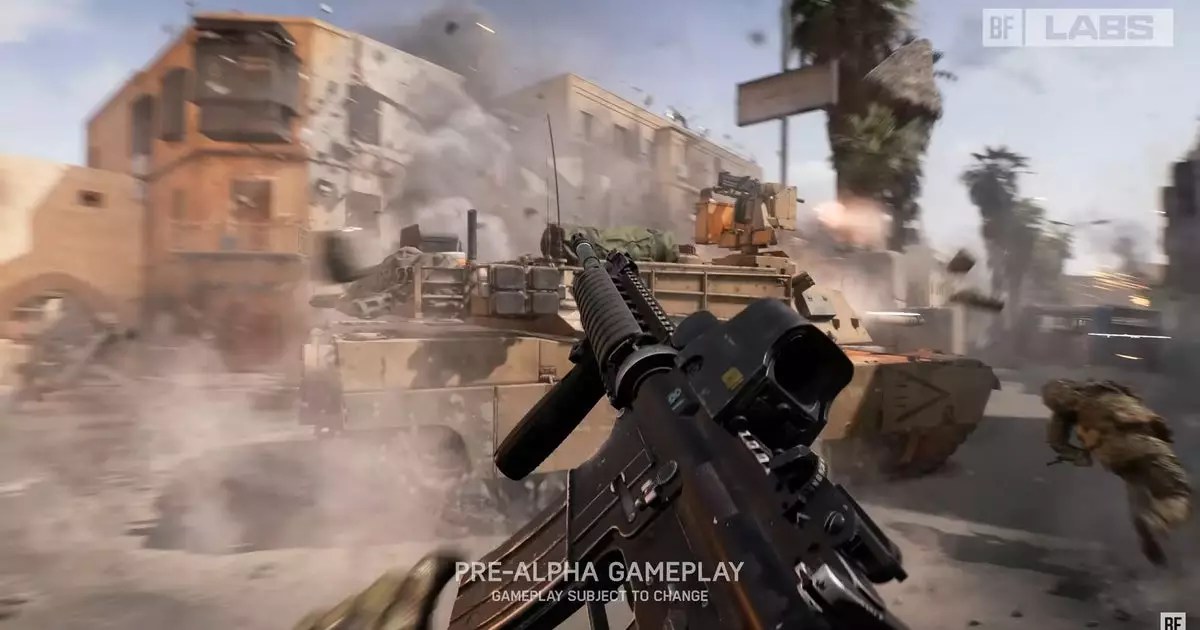The gaming community has recently been abuzz with chatter surrounding the latest promotional materials for the next installment in the Battlefield series, commonly referred to as Battlefield 6. Featuring an explosive montage of destruction, combat, and developer insights, the promotional video serves both as a teaser and a signal for what fans can expect from this much-anticipated title. However, beneath the flashy visuals lies a complex narrative of expectations, skepticism, and industry politics that could significantly influence the game’s reception.
The promotional material spotlights members from four distinct studios: Dice, Criterion, Motive, and Ripple Effect. These companies are united under the Electronic Arts umbrella, ostensibly showcasing a collaborative effort toward delivering a groundbreaking gaming experience. However, some critics and fans have raised an eyebrow at this unusual amalgamation. The creative synergy of multiple studios sounds promising, but it also begs the question: Is this sheer corporate maneuvering in the face of dismal performance from previous installments, or a genuine effort to innovate?
Each studio brings unique expertise to the table. Dice has long been synonymous with Battlefield’s fiery and chaotic gameplay, while Criterion’s renowned racing pedigree introduces hopes for improved vehicular mechanics. Yet, the internal business decisions may overshadow creative aspirations—Criterion’s involvement has reportedly delayed their much-anticipated next chapter in the Need for Speed franchise. This revelation raises alarms about prioritizing financial expediency over artistic vision.
While the video does attempt to present novel features—such as a single-player campaign set in a modern or near-future environment—the gameplay snippets reveal a somewhat formulaic approach. Rocket-propelled grenades leveling defiant structures and tanks lumbering through the chaos are stable elements of the Battlefield formula. For stalwart fans, this might evoke feelings of nostalgia, but for newcomers and skeptics alike, it may also signify stagnation rather than innovation.
The most intriguing aspect discussed is “Battlefield Labs,” a new playtesting initiative where public members can engage with pre-release versions of the game. While this sounds like a clever marketing tactic to heighten engagement with the community, it effectively reduces the developers’ risk. The opportunity to gather live feedback is invaluable, but the implication of constraining beta testers under nondisclosure agreements raises ethical questions about fan participation.
Industry Dynamics and Future Implications
The promotional video sidelines the now-defunct Ridgeline Games, a studio once vocal within the Battlefield community. This omission is indicative of larger industry dynamics—decisions to cut or merge studios often reflect internal struggles, resource allocation issues, or shifts in creative direction. As a result, the absence of diverse voices may hamper innovation, leading to a derivative experience and potentially eroding fan trust.
While Battlefield 6 has all the makings of a blockbuster with its renowned explosive gameplay and high-stakes multiplayer experience, the shadow of past failures casts doubt on its potential for innovation. The key lies in whether these diverse development teams can eclipse corporate constraints and deliver a product that resonates with both purists and newcomers alike. Only time will tell if the hope surrounding this game can transform into a memorable gaming experience.


Leave a Reply